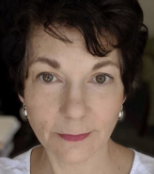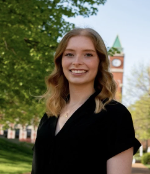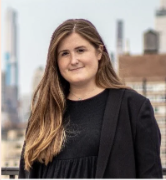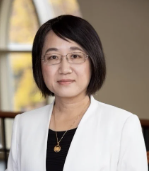Issue Archive
COVID-19 and Asian American and Pacific Islander Healthcare Providers The Importance of an Ecological Lens when Examining Stressor Exposure and Outcomes

Terri L. Weaver, Sophia R. McMorrow, Sydney L. Bell, Jeane Bosch, & Jintong Tang
The SARS-CoV-2 or COVID-19 pandemic was a cataclysmic global event that overwhelmed healthcare systems, profoundly impacted healthcare providers’ mental and physical health (Magill et al., 2020), and brought racism, cultural and systemic disparities into hyper focus (Singu, Acharya, et al., 2020). Damian Barr (2020) aptly articulated the differential sociocultural impact of COVID-19 in his oft-cited tweet, ‘We are not all in the same boat. We are all in the same storm. Some are on super-yachts. Some have just one oar.’ Macrosystems, including historical, societal, and cultural contexts, are vital when considering the confluence of identity with the COVID-19 stressor experiences of Asian American and Pacific Islander (AAPI) healthcare providers (Louie-Poon et al., 2022). These macro factors include sociocultural narratives that yoked COVID-19 to AAPI racial identity, conveyed heroic expectations for providers in concert with AAPI identity tropes, and conferred messages of inferiority steeped in historical legacies, instantiated in workplace dynamics, and internalized in identity.
Broadly speaking, both regulatory and cultural institutions can influence the uncertainty and risks that AAPI healthcare providers face, and ultimately the mental health and well-being of AAPI members. Regulatorily, the world has witnessed a remarkable upsurge in populism (i.e., the aggressive pitting of “the people” against “the elites”) since the Brexit referendum, the election of Donald Trump, and the riots at the United States Capitol. Populist political leaders have been actively promoting the connection between masculinity and politics (Boatright & Sperling, 2020). Trump’s slogan “Make America Great Again,” for example, appealed to patriotism and nostalgia by referencing a glorious golden past, the past when America was less diverse with forceful strong-man leadership. Populism is generally characterized by xenophobia and anti-intellectualism (Borins , 2018). Xenophobia refers to restriction on the movement of people (e.g., opposition to immigration) and restriction on the movement of goods and capital (e.g., opposition to globalization). Populists not only create an ideological difference between the “people” and the “elite” but articulate the “people” as insiders and “others” as outsiders, which considers entry of immigrants and foreign corporations as posing socioeconomic, cultural, religious, and political threats (Magistro & Menaldo, 2022). This can increase AAPI individuals’ fear of being “othered” and losing protections in such hostile institutions, leading to greater stress.
Culturally, AAPI members cherish the tight culture where societal institutions such as the family, educational system, media, and justice system restrict permissible behavior and provide greater normative guidance to societal members (Gelfand et al., 2006). Members of tight cultures, due to shared societal understanding, tend to develop psychological adaptations denoted by caution, self-monitoring or discipline, and predictability (Gelfand et al., 2006). In such cultures, individuals’ emotional appraisals or assessments of emotion-causing events are significantly guided by society’s normative expectations. “The nail that sticks out gets hammered down,” a Japanese proverb, aptly describes the greater conformity in tight cultures (Speake & Simpson, 2008). Accordingly, some AAPI members are afraid that if they openly share experienced discrimination and stress, they will be considered incapable, weak, and ultimately “hammered down.” As a result, AAPI members may hold cultural narratives that discourage help-seeking for such issues.
Racialization of COVID-19: Providing Care Amidst Asian Hate
Overt anti-Asian rhetoric soared with COVID-19, with some media outlets and politicians racializing COVID-19 as the “China virus” (Shang et al., 2021). Despite warnings to eschew subpopulation stigmatization during COVID-19 (e.g., World Health Organization [WHO], n.d.) perceived race and ethnicity was often associated with great stigma (e.g., Gutierrez et al., 2022). In this mixed-methods study, AAPI-identified populations had the highest odds of experiencing stigma (OR=6.96), and employment as a healthcare provider and/or first responder also significantly increased odds (OR = 2.50) of experiencing stigma. At the intersection of identity and healthcare occupation, AAPI healthcare providers shouldered an amplified burden reporting an increase in racism and aggression, including threatened and actual physical assault, threatened sexual assault and verbal harassment (Shang et al., 2021). In addition to overt discrimination, Louie-Poon and colleagues (2022) illuminated the covert, macro-level racism that is baked within the culture, history, and theoretical foundations of nursing, and perpetuated by institutions. For example, while nursing embraces a commitment to promoting social justice and upholding human rights, the theoretical foundations of nursing fail to integrate antiracist and intersectional concepts. Institutional instantiation of anti-Asian racism includes experiences where AAPI providers are relegated to inferior professional status, exposed to demeaning comments by colleagues and staff, characterized as foreigners, and limited in opportunities for advancement or positions of leadership (Louie-Poon et al., 2023). Thus, racialization of the virus resulted in otherness and hypervisibility of AAPI providers as a perceived health threat, activating stigmatization, discrimination and violence — all within an institutional environment awash with covert discrimination and exclusion.
Othering AAPI Healthcare Providers: Superhero Expectations Amplify Cultural Tropes
At the start of the COVID-19 pandemic, healthcare providers were lauded as “healthcare heroes” in mainstream and social media (Cox, 2020). Hospitals provided pizza and ice cream parties, celebrities dedicated performances to ‘modern day superheroes,’ and cities across the United States erupted into collective applause at dusk (Pangborn et al., 2021). Simultaneously, in their own social media posts, healthcare providers expressed anger and frustration about expectations to work without basic personal protective equipment (PPE) during long, physically demanding hours, to shoulder this treatment imperative despite individuals flouting virus mitigation (Pangborn et al., 2021), and to be superhuman without societal acknowledgement of any possible limitations in duty to treat (Cox, 2020). These hero expectations othered healthcare providers by providing accolades for extraordinary efforts without acknowledging the concomitant, cumulative toll of the work.
Such ‘hero’ othering is magnified for AAPI healthcare providers, when considering identity-related societal tropes. Certain Asian subgroups have been characterized as the ‘model minority,’ which is a singular, homogeneous identity characterization that dictates a mythic reality of people with lives devoid of suffering and expectation of silence in the face of trauma and adversity (Louie-Poon et al., 2023). Expectations for hyper-resilient individuals by virtue of role (hero) and identity (model minority) confer invisibility (see Louie-Poon et al, 2023 for an expanded discussion) for the actual lived experiences of these providers. This erasure of the discrimination realities as well as the unique experiences of diverse AAPI provider populations is instantiated in workplace dynamics that perpetuate inferiority, research designs that blur distinctions between subpopulations, and assessments of psychological distress lacking in cultural congruence and specificity.
Asian Invisibility in Workplace, Research, and Mortality
Anti-Asian institutionalized racism prescribes inferiority in the professional status of AAPI healthcare providers (Louie-Poon et al, 2023) with accompanying disparities in the occupational exposure landscape. Hawkins (2020) converged data from the Bureau of Labor Statistics (BLS) Current Population Survey (CPS) for 2019 with descriptive data regarding occupational risk and proximity for infections using their previous work. A greater percentage of AAPI and Black workers when compared with the proportion of white and Hispanic workers were employed in occupations with a substantial risk of COVID-19 infections. These occupational risks included work as respiratory therapists and registered nurses, and occupations with proximity to others, including physical therapists and personal care aids. Based on these omnibus findings, AAPI healthcare providers were disproportionately positioned by occupation type and proximity to incur greater risk for virus exposure.
Refining the examination, Escobedo and colleagues (2022) used a sophisticated, creative data compilation approach to examine COVID-19 mortality data within Asian subpopulations, generally, and those working in healthcare, specifically. Researchers found disproportionate deaths for Filipinx healthcare providers. Both the percentage of Filipinxs among Asian Americans and the percentage of Filipinxs in the healthcare workforce were positively correlated with a greater percentage of Asian American COVID-19 deaths. Healthcare occupation was a robust predictor as the percentage of Filipinx in healthcare predicted Asian American COVID-19 deaths even after controlling for age, poverty and population density. The legacy of the United States’ colonial control of the Philippines was posited as one pathway to disproportionate mortality.
Colonial mentality is a construct that refers to the internalized oppression that exists in the Filipino American community (David & Okazaki, 2006). It has been described as manifesting in several ways, including denigration of the Filipino self, culture, and body. This denigration includes feelings of shame, embarrassment, or resentment of being Filipino, as well as perceiving White physical features as superior and Filipino features as inferior. There is also discrimination towards those who are less acculturated due to feelings of inferiority, and tolerance and acceptance of historical and contemporary oppression. The latter is due to the perception of colonizers as ‘heroes,’ which can lead to the normalization of discriminatory actions or maltreatment from the dominant group. As such, colonial mentality could instantiate contemporary perceptions of Filipinx inferiority through present-day, institutional practices and internalization of lesser status within Filipinx identity. Internalization of inferiority could prompt efforts to prove worth by stepping forward to care for the sickest patients and suppressing agency for advocating for personal safety combined with institutional practices of unequal access to PPE and patient assignments that confer greater proximity to viral risk (Escobedo et al., 2022). These perceptions are consistent with the tolerance of historical and contemporary oppression and a sense of indebtedness to the colonizers, such as the United States. Some individuals may feel extremely grateful just to be in the United States and may not perceive actions towards them as discriminatory (David & Okazaki, 2006). These findings highlight the importance of interrogating Asian subpopulation experiences and their respective cultural narratives.
n terms of psychological outcomes, Prasad and colleagues (2021) described occupational stress findings from 20,947 healthcare workers who responded to the ‘Coping with COVID’ national survey. Stress was higher among nursing assistants, medical assistants, social workers, inpatient workers, women and persons of color (Black and Latinx workers) and those who felt institutionally devalued. While AAPI providers did not report elevated levels of stress, there was a considerable number of participants who reported elevated levels of stress but preferred not to disclose their race. Given the stereotypical AAPI identity-related prescription for silence and that the indicated identity (women) and occupational (nursing assistants, feeling institutionally devalued) stress predictors are representative of AAPI healthcare providers, it is plausible that AAPI stress responses were captured without race disclosure. For example, a study providing a general Asian/Pacific Islander race option, without subpopulation specificity, may lead respondents to select no response rather than a broad response that does not fit their identity. Cultural prescriptions and the stigma of disclosing emotional distress may have also led AAPI healthcare providers to decline participation in the study or to underreport their stress when they did participate and report race. These findings highlight the challenge of documenting objective (mortality) and subjective (morbidity) AAPI healthcare provider experiences using extant research methods. These gaps in knowledge, themselves, have been deemed forms of structural racism as they homogenize diverse AAPI communities (e.g., Escobedo et al., 2022) and rely on research epistemologies that may be culturally incongruent with the prescribed narratives for AAPI populations.
uture Directions and Limitations
Creating culturally informed, antiracist health care settings for AAPI healthcare providers is a public health imperative. At the macro and theoretical level, we support Louie-Poon and colleagues’ (2023) call to expose and dismantle covert racism embedded in the foundation of nursing including theory, pedagogy and institutional practices. Similarly, it is critical to develop and incorporate social justice research strategies and build community coalitions informed by AAPI scholars (e.g., Pheng & Xiong, 2022) to provide voice and representation of AAPI experiences. In terms of limitations of this review, while some members of our team are behavioral healthcare providers and engage in interdisciplinary research and clinical work in healthcare settings, we do not have a medical healthcare provider as an author. Therefore, our summary is subject to our potential biases as nonmedical providers. We have been intentional to include cited work by authors with identity and occupational proximity to this topic and encourage individuals to read their excellent, foundational scholarship.
Socio-ecological systems, including historical, societal, and cultural contexts, shape human identities and frame the exposure and impact of AAPI healthcare providers to COVID-19. Centering ecological and identity-based perspectives in the theory, research and practice of trauma psychology is a small but crucial step toward decolonizing the field.

ERRI L. WEAVER, PhD is a professor of clinical psychology at Saint Louis University whose research focuses on the ways in which aspects of identity and macro contexts inform sequelae following exposure to potentially traumatic events. Her most recent work includes collaborations with providers in critical care medicine to examine burnout and meaning making associated with pediatric patient deaths, with domestic violence advocates and community leaders to examine bias within built systems of care for Black women experiencing intimate partner violence, and with nursing and sociology to examine the impact of conducting trauma-related research on the researcher. She maintains a trauma-focused clinical practice and a forensic practice, serving as an expert witness in civil and criminal litigation.

SOPHIA MCMORROW graduated with honors from Saint Louis University with her bachelor’s of science degree in psychology. She currently works as a clinical research assistant at Washington University in St. Louis where she applies a neuroimaging system called high-density diffuse optical tomography for neuromonitoring infants in the critical care unit and to investigate the developmental underpinnings of Autism Spectrum Disorder. She aspires to earn her PhD in clinical psychology and pursue a career in research.

SYDNEY BELL is a Clinical Psychology doctoral student and graduate research assistant in the Saint Louis University Violence and Traumatic Stress laboratory. Sydney has experience in community-based public health research including a multi-site study aimed at reducing opioid overdose deaths in high-risk communities, and a qualitative study on community access to intimate partner violence services for Black women. Most recently, Sydney has assisted in a series of studies examining Pediatric Intensive Care Unit provider trauma exposure and wellbeing.

JEANE BOSCH, PhD, MPH, is a clinical psychologist with the National Center for PTSD (NCPTSD), Dissemination and Training Division. She is an Implementation Facilitator and Evaluation Lead for the Tech into Care program at NCPTSD. Her primary focus is to expand the reach of VA mental health apps to improve care for veterans. She provides training to VA staff and the community on the integration of apps into care and offers support to those implementing this practice at the individual or program/facility level. Dr. Bosch is also trained in evidence-based treatments for PTSD, such as Prolonged Exposure and Cognitive Processing Therapy (certified), and has worked with diverse populations, including female veterans, particularly those with a history of military sexual trauma.

JINTONG TANG, PhD, is Mary Louise Murray Endowed Professor in Management, Research Institute Fellow, and Director of the Emerson Leadership Institute at Saint Louis University. Her research has appeared in more than 80 refereed journal publications and more than 100 refereed/invited conference proceedings. She has received multiple Best Paper Awards/Finalists at the Academy of Management and United States Association for Small Business and Entrepreneurship Conferences.
Citation: Weaver, T. L., McMorrow, S., Bell, S., Bosch, J., & Tang, J. (2024). COVID-19 and Asian American and Pacific Islander healthcare providers: The importance of an ecological lens when examining stressor exposure and outcomes. Trauma Psychology News, 19(1), 24-30. https://traumapsychnews.com
